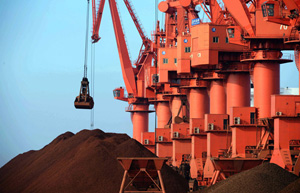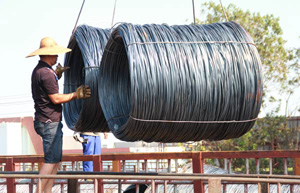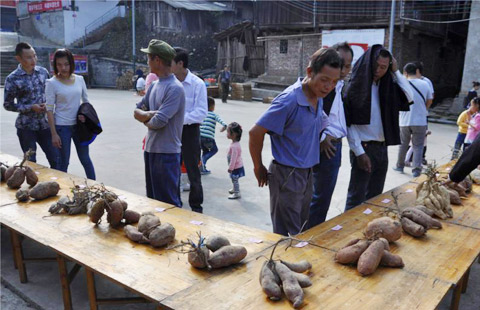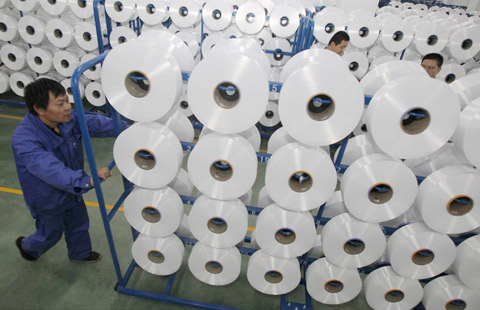Steel firms lose ground to retail in industry ranking
By Du Juan (China Daily) Updated: 2014-10-28 07:56Affected by weakening domestic demand and falling prices, private-sector steel producers fell out of the top 10 positions on the top 500 private companies list, which was released by the China Non-government Enterprise League on Sunday.
Suning Appliance Co Ltd, Legend Holdings Ltd and Shandong Weiqiao Pioneering Group Co Ltd held the top three places.
The list is compiled by the league and two other statistics and management institutions.
Retailers took two spots among the top 10, as did the information technology industry. Three petroleum and chemical companies made it into the top 10 as well: Xinjiang Guanghui Industry Investment Group Co Ltd, CEFC China Energy Co Ltd and Hengli Group.
The country's largest private-sector steel company, Jiangsu-based Shagang Group Corp, fell out of the top 10. Shagang had total revenue of 228 billion yuan ($37.25 billion) in 2013, higher than CEFC China Energy, which recorded revenue of 209 billion yuan. Those numbers indicate that ranking on the list was not fully determined by financial performance.
Xu Xiangchun, a senior analyst with Mysteel, a Shanghai-based steel information consultancy, said different lists are compiled using different standards and it is hard to comment on the reason for Shagang's absence.
The majority of the companies on the list are still in the manufacturing sector, with a focus on metal refining, smelting, electronic equipment and construction.
There were 11 metal refining companies in the top 50 both this year and last, even though some well-known companies such as Shagang and Shandong-based Rizhao Iron and Steel Group Co Ltd were absent.
According to a list published by the All-China Federation of Industry and Commerce in August, 82 steel companies were included in the top 500 private enterprises for 2014.
Shagang was fifth on that list and first among private-sector steel companies.
In recent years, privately owned steel companies have been hit by weak downstream demand and falling prices. They have also had to deal with government policies intended to drive smaller producers out of the business to tackle pollution and overcapacity.
Large State-owned steel companies, some of which get local government subsidies, have the capital, technology and talent to comply with environmental protection standards, while the private-sector ones face higher costs for upgrading.
Some private companies such as Shagang are expanding their non-steel businesses to survive the market.
Shen Wenrong, president of Shagang, said the company's non-steel revenue will reach 100 billion yuan by 2015, accounting for one-third of the total.
"Mergers and acquisitions are ways for private companies to pursue their own paths during the bad times," said Li Xinchuang, head of the China Metallurgical Industry Planning and Research Institute.
|
 |
 |
| Iron ore imports poised for 15% growth | Economic woes crimp steel demand |
- Investors welcome 'Apple-Alibaba marriage'
- China's property loans growth slows
- China's Huawei signs Santos sponsorship deal
- Huge commercial property site set for west Beijing
- Shopping mall develops farmland to promote green lifestyle
- New rules coming for smartphone apps
- Top 12 economic data of China in Sept
- Cook, Ma talk marriage of mobile payments
















